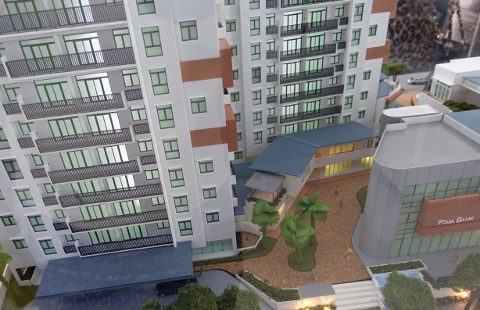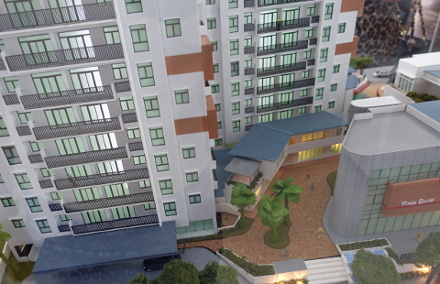Olivia Cable soaks up the penthouse view in Myanmar’s increasingly urbane capital.
Naypyitaw is one of the 10 fastest growing cities in the world. That’s what the developers said at the opening of Naypyitaw’s first luxury apartment complex on 8 May 2015.
The prestigious condominium and commercial plaza, KrisPLAZA, launched the sale of its 114 apartments. Located in the southern township of Zabuthiri, KrisPLAZA is all about location: close to the Gem Museum, the Royal Myanmar Golf Course and two major shopping malls, Junction and Central.
When completed in the latter part of 2016, the complex will also have space for Yoma Bank’s new regional headquarters. While ownership of the 114 apartments is restricted to Myanmar nationals, it’s expected they will be rented to multinational corporations or foreign embassies. Real estate agents were busy taking notes as the developers made their speeches
Yet even with a “special price” of US$ 113,000 for a one-bedroom apartment, to US$267,000 for a three-bedroom, there didn’t appear to be any buyers on the opening day.
Today, low levels of occupancy in Naypyitaw’s hotels are unsustainable. Most visitors to the capital city do short, hustle-and-bustle, trips from Yangon. Many fly up for a day jammed with meetings.
What they find is that Naypyitaw can be divided into three areas: the north, for administration and irrigation; the centre, reserved for administration and development; and the south, reserved for private-sector housing, the diplomatic quarter and administration. Urban settlements have been demarcated for the inner core, and the military based in the outer core.
Plans to develop an extensive highway system in Naypyitaw can be dated back to the 1950s. In 1954, the U Nu government published ‘Pyidawtha: The New Burma’, a 185-page document which planned a long-term strategy for national economic and social development. Rehabilitation for the Yangon and Mandalay highway – or ‘Route 1’ -was proposed, as was the construction of a 50-mile road from Loikaw to Pyinmana.
Now that Route 1 has been reconstructed, and is linked to the transcontinental Trans Asian Highway, Naypyitaw is well placed to drive national economic development.
While all the basic infrastructure has been built, so far, banality and conformity have won out. Naypyitaw is an irony-free zone. Cities need sophistication and creativity. In this regard, an emerging urban market-space, bringing in new financial capital, should be welcomed.
KrisPLAZA plays on the geometries of luxury. Each apartment has a concrete foundation and structure, aluminum window frames, paved driveway, landscaped grounds and a perimeter fence. In the showroom on the opening weekend, the dining room was set for a lavish housewarming party, champagne glasses included.
The kitchen’s stainless steel taps, double-plated gas stovetop, refrigerator and generous storage space is markedly different from the average Naypyitaw hotel room. To add colour, jars of pasta and packets of Campbell’s instant soup were proudly displayed.
At least in the kitchen, the effect doesn’t work. It’s as if a Warhol painting has walked in, looked around and, sensing a lack of appropriate domesticity, carefully deconstructed itself there on the kitchen bench.
In its open plan design, bookshelves partition the dining and sitting rooms. The Leather couch, flat screen television and air-condition unit style fashion the comfort of luxury living in Naypyitaw. On the shelves and next to a family portrait was a small collection of books, including the Australian novel The Slap by Christos Tsiolkas.
While the bedrooms didn’t have much to say, the bathrooms did – glass shower panels, double-headed showers and plenty of space to move around.
Like Canberra, another relocated capital city, Naypyitaw is a city yet to build its inner core. KrisPLAZA is located in a place with great potential for future economic, social and cultural activities.
But the question remains: will luxury and space lead to an edgy city that so far is veiled with glossy aesthetics rather than gritty urbanity?
Olivia Cable is a Research Assistant with the Coral Bell School of Asia Pacific Affairs at The Australian National University.
 Facebook
Facebook  Twitter
Twitter  Soundcloud
Soundcloud  Youtube
Youtube  Rss
Rss 
